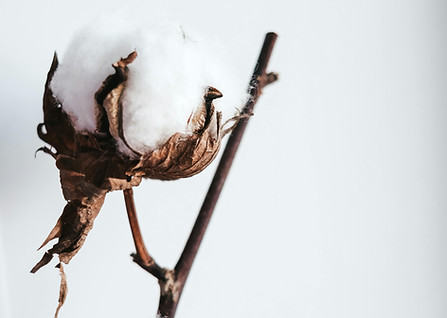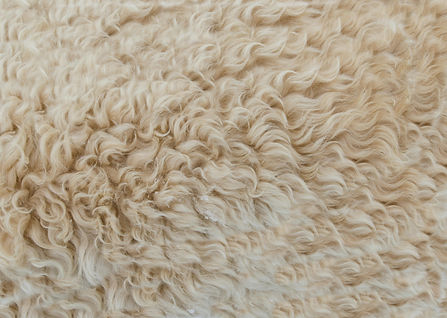
Fiber Options
Natural Fibers

A widely used natural fiber known for its breathability, softness, and durability. Ideal for everyday clothing like t-shirts, underwear, and casual wear due to its comfort and affordability.
Cotton

Grown without synthetic pesticides or fertilizers, organic cotton is eco-friendly and skin-safe. Commonly used in babywear, loungewear, and sustainable fashion where gentle and ethical materials are preferred.
Organic Cotton

An extra-long staple cotton grown in the USA, Supima is softer, stronger, and more color-retentive than regular cotton. Best suited for premium t-shirts, luxury loungewear, and high-end fashion basics.
Supima Cotton
.jpg)
Known for its long fibers and silky feel, Egyptian cotton offers superior smoothness and strength. Frequently used in upscale garments, fine shirting, and premium bedding products.
Egyptian Cotton

A sustainable and ultra-soft fiber with natural antibacterial and moisture-wicking properties. Ideal for activewear, innerwear, baby clothing, and eco-conscious fashion due to its breathability and comfort.
Bamboo

A natural insulating fiber that regulates temperature and resists odors. Commonly used in winterwear, sweaters, socks, and outdoor apparel for warmth, durability, and natural elasticity.
Wool
Semi-Synthetic Fibers

A semi-synthetic fiber made from beechwood, known for its silky feel, breathability, and high absorbency. Commonly used in underwear, loungewear, and soft drapey t-shirts due to its comfort and flexibility.
Modal

A versatile, silk-like fiber derived from wood pulp. Often used in dresses, blouses, linings, and fashion-forward styles for its smooth texture, vibrant dye uptake, and affordability.
Viscose Rayon

An eco-friendly fiber from sustainably sourced wood pulp, valued for its softness, moisture management, and biodegradability. Ideal for premium loungewear, sleepwear, activewear, and sustainable clothing lines.
Lyocell (Tencel)
Synthetic Fibers

A durable, wrinkle-resistant synthetic fiber with excellent shape retention and quick-dry properties. Widely used in sportswear, outerwear, and affordable fashion due to its strength and low maintenance.
Polyester

A strong, lightweight synthetic fiber known for its elasticity and abrasion resistance. Commonly used in activewear, swimwear, hosiery, and performance gear where flexibility and durability are essential.
Nylon

A synthetic alternative to wool, offering warmth, softness, and resistance to moths and wrinkles. Frequently used in sweaters, scarves, hats, and budget-friendly knitwear.
Acrylic
Special Fibers

Extremely fine synthetic fibers (often polyester or nylon) that are lightweight, soft, and highly absorbent. Used in activewear, cleaning cloths, and performance apparel due to their moisture-wicking and quick-dry properties.
Microfibers

Made from pre- or post-consumer cotton waste, it reduces textile waste and water usage. Common in sustainable t-shirts, denim, and casualwear, though typically blended for added strength.
Recycled Cotton

Produced from recycled plastic bottles or post-consumer polyester waste, offering the same durability and functionality as virgin polyester. Used in eco-friendly activewear, outerwear, and sustainable fashion collections.
Recycled Polyester

Polyester that's spun like cotton, giving it a soft, natural feel while retaining durability and wrinkle resistance. Commonly used in uniforms, table linens, and t-shirts where comfort and resilience are both needed.
Spun Polyester

A naturally sourced, breathable fiber known for its softness, antibacterial qualities, and moisture-wicking properties. Ideal for eco-friendly basics, innerwear, babywear, and loungewear.
Bamboo

Combinations of two or more fibers (e.g., cotton-polyester, modal-elastane) to enhance performance, comfort, or durability. Used across all apparel categories to balance softness, strength, stretch, or cost-effectiveness.

.jpg)



